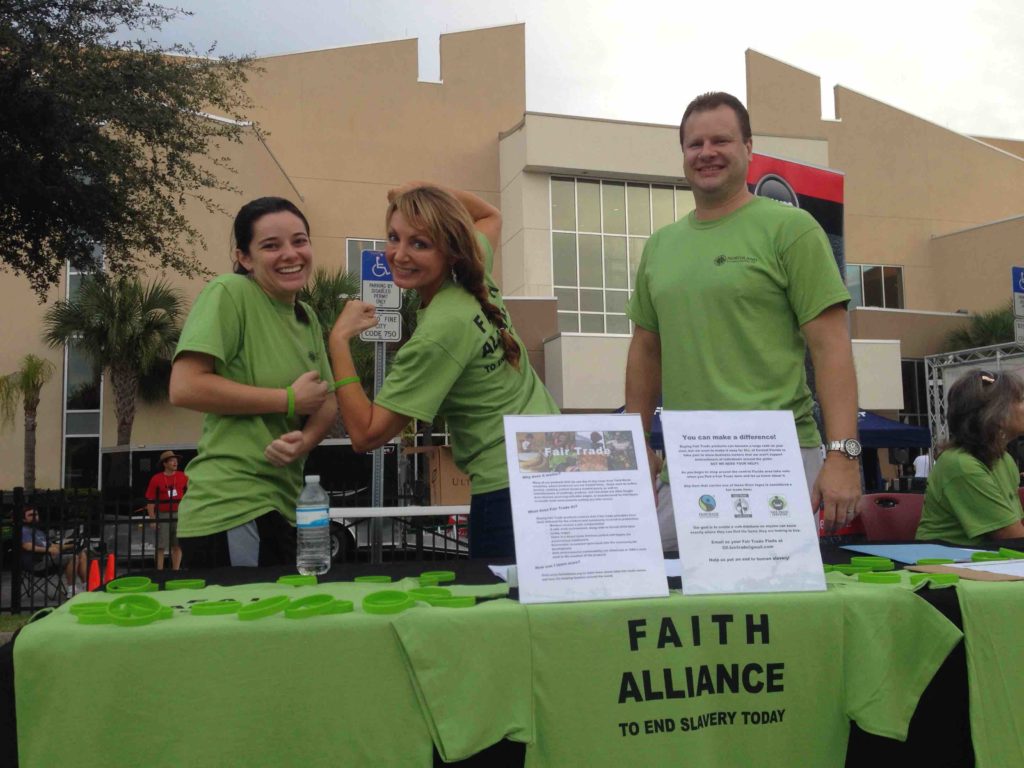
In 1863 when President Abraham Lincoln signed the Emancipation Proclamation, slavery ended, right? Not exactly. More than 150 years later, slavery still exists. It’s a different monster now, though, and one that goes largely undetected.
Some call it modern-day slavery or human trafficking. According to the U.S. Department of State, it is the second largest criminal industry in the world, and the fastest growing. Sadly, each year more than 2.5 million Americans are victims of human trafficking. And it’s happening right here in Central Florida.
Fortunately, there are locals who are taking a stand against it. Meet Tomas Lares and Jami Wray. They are modern-day abolitionists.
Lares founded Florida Abolitionist, a non-governmental organization established to campaign against modern-day slavery. His approach is a focused strategy to educate, equip and empower the faith community.
“I have been inspired because of those who have gone before us,” says Lares. “Individuals such as William Wilberforce, who was instrumental in abolishing the trans-Atlantic slave trade in the British empire. Also, Harriett Tubman and Frederick Douglass whose faith guided and gave them the strength to see the Emancipation Proclamation and the 13th Amendment.”
Wray was inspired to become involved a few years ago when she read “Half the Sky” by Sheryl WuDunn and Nicholas Kristof. “The book opened my eyes to horrific things that were happening right under our noses, not just in other countries but right here in our own back yards,” Wray says.
She decided to take action. Last year, Wray and her husband started attending Human Trafficking Task Force meetings at Northland, a church in Longwood.
“When people think of Central Florida, they tend to think of Disney, Universal, SeaWorld, and all of our other parks and entertainment, not human trafficking,” Wray says. “In reality, human trafficking is a serious issue throughout Florida, with the I-4 corridor as a main throughway traffickers use to transport their victims back and forth from Orlando to Tampa.”
Wray says there are many forms of human trafficking beyond sex trafficking, including domestic servants, agriculture and farming, restaurants and hospitality, and peddling and begging rings. Businesses like nail salons and massage parlors have even been involved with trafficking workers through its doors.
“You can only use a drug once, but you can use a person over and over, so people who used to sell drugs are starting to turn to human trafficking because it’s more profitable and harder for law enforcement to detect,” says Wray.
This begs the question. How do you even go about tackling a problem this complex? The first step is awareness. That’s why Florida Abolitionist and other local organizations host a free Human Trafficking Awareness Day every January. And prayer also plays an equally important role. “For me, my faith is my motivation of why every human being has value, dignity and importance in this life,” Lares says.
At the end of the day, does Wray feel like she’s making any headway? “Yes, slowly but surely,” she says. “This is a horrific injustice that must end, and it won’t happen unless people get involved.”





